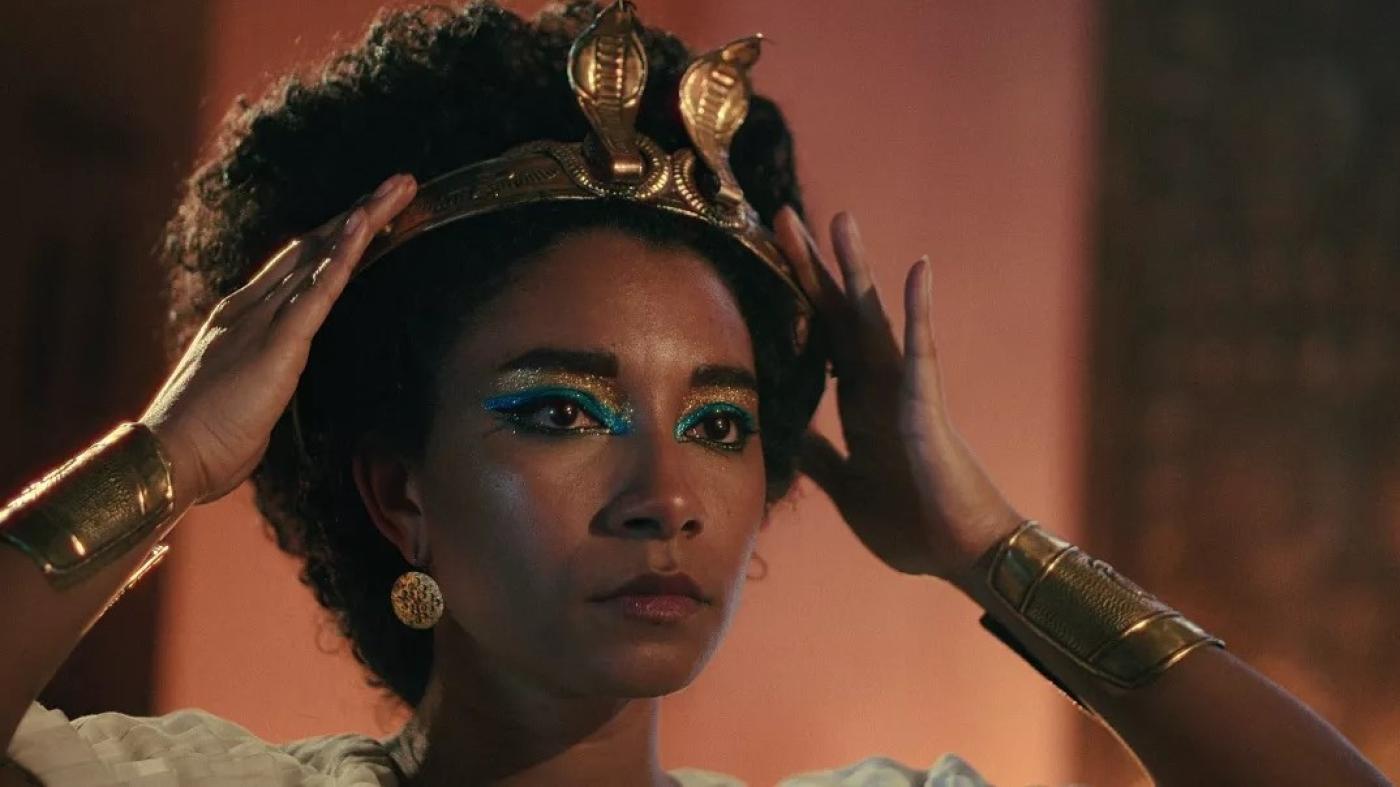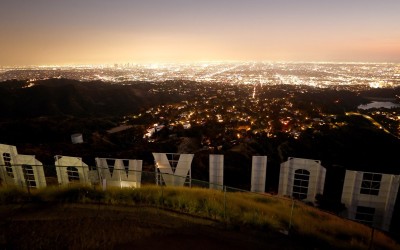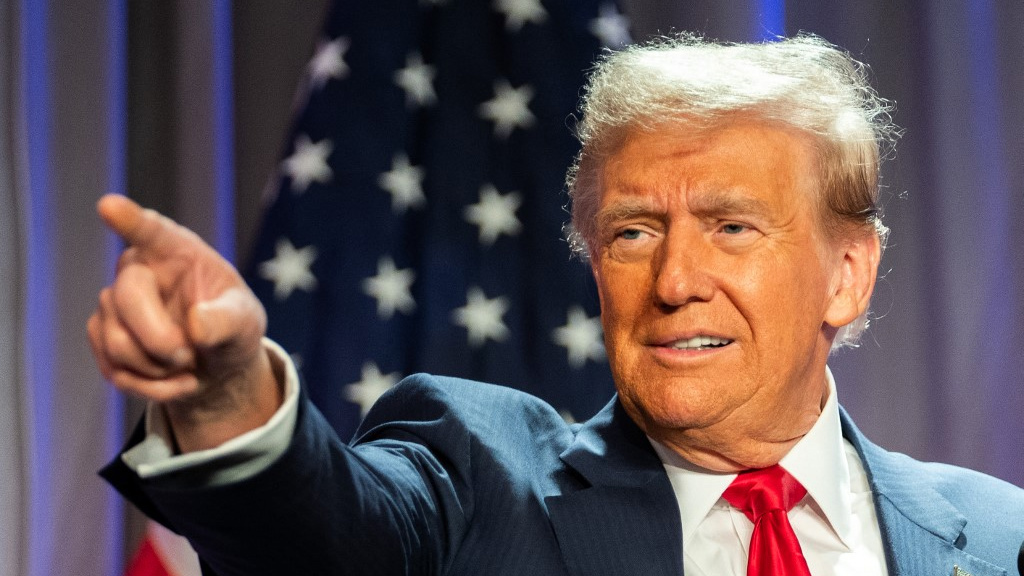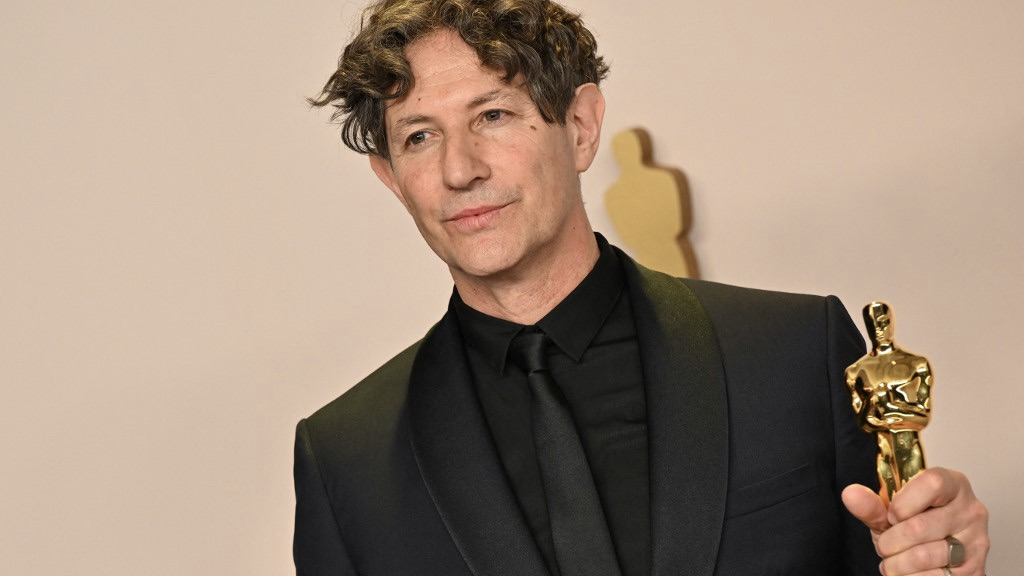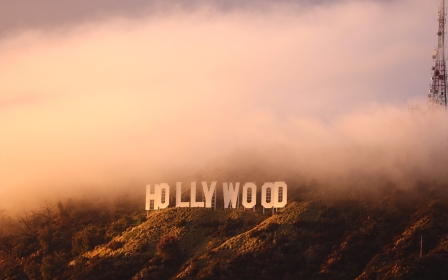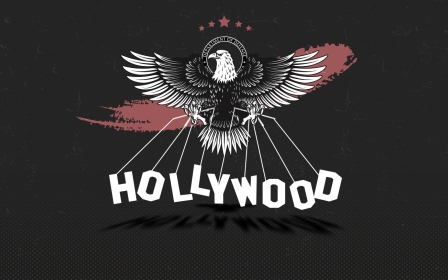How Hollywood failed to change Trump’s America and what Arab artists must now do
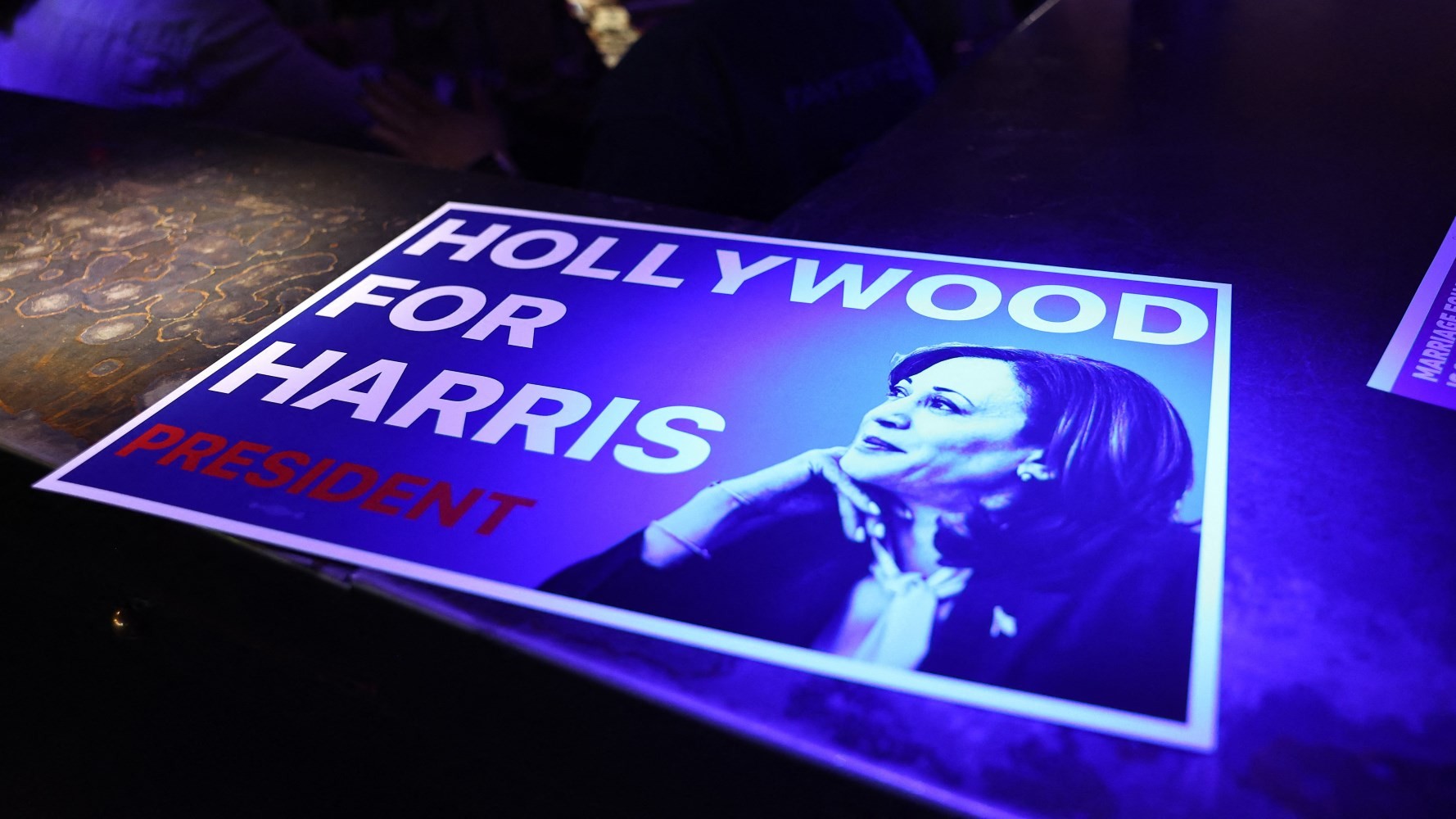
This has been a vintage year for documentary filmmaking, boasting a remarkable international roster of illuminating and inventively narrated films.
There were works on colonialism like Soundtrack of a Coup d’etat and Ernest Cole: Lost and Found; and on Palestine, like No Other Land; on sexual assault like Black Box Diaries, and cultural restitution like Dahomey, to name but a few.
Nevertheless, the highest-grossing documentary feature in the US this year shared none of the earnest liberalism of those works.
Justin Folk’s Am I a Racist? was an unheralded triumph for the right-wing media: a Borat-style mockumentary that attempts to expose the hypocrisy underlining American diversity, equity and inclusion (DEI) programmes.
Produced by Ben Shapiro’s The Daily Wire, the film follows Republican podcaster Matt Walsh as he penetrates liberal white-hating America, or as he depicts it.
New MEE newsletter: Jerusalem Dispatch
Sign up to get the latest insights and analysis on Israel-Palestine, alongside Turkey Unpacked and other MEE newsletters
In his treacherous odyssey through the blue lands, Walsh swipes at Disney’s diversity politics, crashes a seminar on “White Grief” whose moderator charges $30,000 per session, and, in the most eye-raising segment, takes on Robin DiAngelo, the author who coined the term "white fragility” in her 2018 best-selling book of the same name.
Walsh reveals that DiAngelo has charged him $15,000 for the interview. As a key architect of the DEI industry, her work has influenced corporate giants like Amazon and Netflix.
And while there’s some merit to her intellectual discourse, her work over the past six years cannot be characterised as anything but corporate baiting .
Near the end, Walsh interviews two working-class communities, one white and the other black.
Both express bafflement at DEI lingo, casually rebuffing Walsh’s suggestion that America still has a race problem, ultimately delivering the expected “We’re all one in God’s sight” line.
A conservative’s wet dream, the film is a snarky, half-witted piece of decently edited propaganda that parodies a liberal establishment that has marginalised Republicans for decades.
For all its ostensibly manipulative editing and feeble argumentation against political correctness, Am I Racist? adopts the same patronising tone as Sacha Baron Cohen without exposing anything but the entitlement and racism of its makers.
For any liberal person of colour, Am I Racist? is an agonising watch: a slice of bad filmmaking designed to absolve its audience of any guilt from unchecked privilege or latent racism.
The fact that this is the most popular documentary of 2024 is no surprise. Am I Racist? is an emblem of Trump’s America: it’s a morally bankrupt hodgepodge of misinformation heavy on sensationalism and free of intellect.
Progressivism and Trump 2.0
I couldn’t help but think of Am I Racist? in the aftermath of Trump’s return to power. For all its staunch efforts at diversity, its embrace of queer culture and growing woke attitude, the success of Am I Racist? and by default Trumpism was a slap in Hollywood’s face.
The liberal establishment’s waning influence has proven that it is not as powerful or impactful as the world believed it to be.
Ink has been spilled over the failure of the Democratic Party and the potential impact of Gaza on the election results, yet little of note has been discussed about the failure of the liberal discourse in converting a nation increasingly mired in racism, and utter disdain for human rights and fundamental freedoms.
For nearly a decade, Hollywood has prided itself on being a beacon of progressiveness after enduring years of criticism for its exclusion of people of colour.
Disney, Netflix, and big studios were forced to embrace DEI, resulting in more ethnic minority and LGBTQ representation.
We cheered for Moonlight and its unexpected Oscar triumph over La La Land, celebrated Black Panther and Crazy Rich Asians, and hailed Ramy and Mo as a new dawn for a more forward-looking Hollywood.
It didn’t matter that the majority of these works were not as revolutionary or daring as we erroneously rendered them to be; representation is all that mattered and we desperately wanted to believe in a more tolerant and enlightened society that could positively influence the world.
Few believed we had reached a post-race ecosystem but perhaps we were not far away.
On 5 November, this emerging social utopia proved to be nothing but a figment of our imagination.
The problem with Hollywood’s progressive politics is not progressiveness per se, it’s the way in which it's packaged in relation to an increasingly consumerist society afflicted with a spiritual vacuum.
Societal changes in the past decade are little different from the politics that informed the counterculture of the 1960s, namely race, gender, and secularisation of life.
For Americans who fear the “left”, a quick glance at the radical social and political climate of the 60s may come as a shock.
The difference is that the US then was a more educated, more hedonistic, and arguably less avaricious place than it is today.
Today’s reality is one defined by tech companies that have transformed the economy into a technological version of the medieval feudal system, according to Greek economist Yanis Varoufakis.
The film and art of the 1960s were more daring, aesthetically challenging, confrontational and defiant.
Counterculture art was an authentic byproduct of a rebellious generation that wanted to hold a mirror to America’s violent, self-righteous self.
Hollywood’s current DEI engineered films, on the other hand, are nothing more than neatly packaged merchandise manufactured by an elite out of touch with the rest of the country.
A cultural demise of Hollywood’s making
The zero impact of celebrity endorsement of Kamala Harris on the electorate is another illustration of the massive gap between art and an America desperate to find a common enemy to heal its division.
Ironically, Hollywood is an integral part of America’s swelling backwardness. It’s not an overstatement to claim that Hollywood has been partly responsible for the dumbing down of the country and resultant reaction against progressive values.
Little produced over the past quarter of a century encouraged the viewers to think freely, to politically or philosophically engage, to question their world and the worlds around them.
Stimulating, challenging storytelling is no longer deemed fit for the masses. Distract, entertain, titillate, but no need to let them think too much
Stimulating, challenging storytelling is no longer deemed fit for the masses. Distract, entertain, titillate, but no need to let them think too much.
After all, who has time to think, to question, to self-reflect, when you have three jobs, endless bills to pay, and a family to raise?
This could also explain why Gaza has primarily been a preoccupation for college students and graduates.
For the vast majority of older populations in their different ethnic backgrounds, America’s support of Israel, and by default Israel’s alleged right to wipe out Palestinian and Lebanese Shia, has been seldom questioned.
Gaza was certainly not the reason why Trump won, or Harris lost. Talk to most Trump voters and you can easily detect that their support for the nation’s first convicted felon president is fuelled by hatred of the immigrant inferior other, a palpable insecurity, and a rejection of the intelligentsia’s liberal ethos.
To put it bluntly, racism, a longing for traditional values, and vehement rejection of factuality are the real driving force behind the return of Trumpism: a rejection of everything that Hollywood represents and advocates.
And perhaps it’s Gaza that has highlighted the flawed morality of Hollywood’s liberalism.
The well-documented silencing of pro-Palestinian voices in film and TV, the backlash against the Jonathan Glazer Oscar speech, and the increasing difficulty of releasing Palestinian and Arab movies in the US after 7 October is an illustration of Hollywood’s selective morality.
Hollywood does not stand on a moral higher ground, it’s part of the general fraudulent political system.
Week in, week out, the nation’s top talk-show hosts have incessantly targeted Trump and his cohorts, exercising their self-superiority and preaching to the converted.
Apart from The Daily Show’s Jon Stewart, Gaza has barely figured in their discourse; America’s continuous backing of Israel has been glaringly absent from Colbert, Kimmel and Fallon raging against Trump.
A turn to Trump?
Colbert and his ilk will not change tracks, but Hollywood, the money-making machine it essentially is, might be forced to.
The success of Am I Racist? comes on the heels of the rise of faith-based films and last year’s mega blockbuster, Sound of Freedom, a white saviour story about an ex-government agent who goes rogue in his quest to rescue helpless children from people trafficking.
Made with a $15m budget, Sound of Freedom’s $250m revenues were too colossal to ignore.
All signs are showing that Hollywood may not stand up to Trump this time around.
The Motion Picture Association (MPA) has already congratulated Trump over his re-election, expressing its desire to work with him on “a range of important issues’ facing the industry.
Sebastian Stan, the Game of Thrones star who made waves this year thanks to his controversial portrayal of a young Trump in Ali Abbasi’s barely watched The Apprentice, revealed last week that his scheduled appearance in Variety’s popular “Actors on Actors” was axed because the talents “were too afraid to go and talk about this movie”.
The same week, Sylvester Stallone compared Trump to George Washington in his adulatory introduction of the president-elect.
Hollywood can no longer ignore half the country’s population. Could an era of a conservative TV and film beacon upon us? Only time will tell.
Upon going back to California, my family’s adopted home, I was instructed by a conservative Zionist Egyptian emigree relative not to talk politics inside their house.
Four main topics I was told to avoid criticising out loud in my phone calls: the US, Gaza, colonialism and the white race (whom they believed to be the most discriminated against group at the moment).
They deemed me “progressive” (a derogatory term in their book) and a “socialist” because “you like Europe, which is socialist”.
When I asked what they know about socialism, how Europe is “socialist” and the difference between socialism, communism, and Marxism, they fell silent and changed subject.
An artistic call to arms
I was livid, enraged by the insipidness of their words, sickened by their conviction that Palestinians and Lebanese were just “collateral damage of a necessary war”.
I failed to engage in civil conversation with them because how can you react to such blind ignorance and bigotry with a straight face? My shortcomings, however, are no different than most liberals.
We have failed to converse with the other side. We have failed to constructively counter and dispel this encroaching intolerance and ignorance; we have failed to decolonise the colonised minds of millions of Americans, white and coloured, like my relative.
The socio-economic system and the state of education are the main culprits for the intellectual and moral bankruptcy of the right, but we, the intellectual left, are undeniably responsible as well.
What we need is an art that captures the complexity and multidimensionality of Arab experience
The next four years will be arduous for pro-Palestinian voices. The widespread crackdown on pro-Palestinian protests in universities is expected to increase under the second Trump reign.
A notorious bill allowing the Treasury secretary to designate non-profit organisations as supporters of terrorism could result in the closure of a sizable number of Arab institutes if approved by Congress.
Arab films and art may find it extra difficult to penetrate an already shrinking American market.
More than 9/11, more than the 2016 election, this is the time that requires the most resistance from Arab artists.
Producing Netflix-like oversimplified narratives of Arab lives in America is not going to cut it this time around, and we need to stop seeking validation from Hollywood and the West for our art and stories.
What we need is an art that captures the complexity and multidimensionality of Arab experience; a shrewd, insubordinate, authentic, and free art created with our own language that challenges the western view of our culture and history.
What we need is to break free from the echo chamber we have enslaved ourselves in. And with colleges no longer being the free space they once were, it’s up to us to create new free spaces devoid of restrictions.
Difficult epochs have always spawned revolutionary art. Whether our artists can conjure up the means and courage to fight and defend the very core of our existence could prove to be one of the most defining cultural battles of the decade.
Middle East Eye delivers independent and unrivalled coverage and analysis of the Middle East, North Africa and beyond. To learn more about republishing this content and the associated fees, please fill out this form. More about MEE can be found here.


